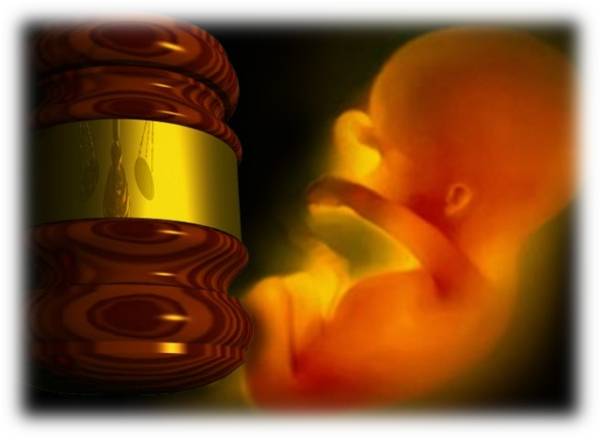A ruling by the Alabama Supreme Court today makes the argument that unborn children deserve legal protection under the law.
The case involves the consolidation of two cases, which address the question of whether Alabama’s law against chemical endangerment of children can be applied to unborn children who are exposed to illegal drugs in utero. Courts of appeal in Alabama upheld convictions of mothers who were charged under the chemical endangerment law, when their children tested positive for illegal drugs at birth.
 The state court issued a ruling saying the state’s chemical endangerment of a child law also includes protection for unborn children. Alabama Attorney General Luther Strange issued a statement calling the decision a victory.
The state court issued a ruling saying the state’s chemical endangerment of a child law also includes protection for unborn children. Alabama Attorney General Luther Strange issued a statement calling the decision a victory.
Strange said the court ruled that “the plain meaning of the word ‘child’ in the chemical endangerment statute includes unborn children.”
“The Court has ratified our argument that the public policy of our state is to protect life, both born and unborn,” Strange stated. “It is a tremendous victory that the Alabama Supreme Court has affirmed the value of all life, including those of unborn children whose lives are among the most vulnerable of all.”
The Court upheld the convictions of two women whose use of illegal drugs while they were pregnant caused their unborn children to suffer exposure to those drugs. The Court’s ruling was a consolidation of two cases—Ankrom v. State, arising from Coffee County, and Kimbrough v. State, from Colbert County. In both cases, the defendants were charged with chemically endangering their children under an Alabama law that makes it a crime to endanger a child by exposing him or her to a controlled substance, a chemical substance such as precursors for manufacturing drugs, or drug paraphernalia.
Hope Ankrom and her newborn son both tested positive for cocaine when the child was born on January 31, 2000. Medical records documented Ankrom’s substance abuse during her pregnancy. She pleaded guilty and was sentenced to three years’ imprisonment, which was suspended, and placed on probation for one year.
Amanda Helaine Borden Kimbrough’s son, T.K., was born premature on April 29, 2008, and he died 19 minutes later after efforts to save him failed. An autopsy determined that his death was caused by “acute methamphetamine intoxication.” Kimbrough pleaded guilty and was sentenced to 10 years’ imprisonment.
Attorney General Strange commended the outstanding work of the his Criminal Appeals Division in handling these cases, noting in particular Assistant Attorneys General Cecil Brendle and Michael Dean.
The pro-life legal group Liberty Counsel filed an Amicus Curiae Brief in the Alabama Supreme Court in the case of Ankrom v. State of Alabama.
CLICK LIKE IF YOU’RE PRO-LIFE!
Liberty Counsel’s brief provided the Alabama Supreme Court with a thorough historical review of legal protection for unborn children, dating from ancient Greece to the present day. Common law in England and the United States, with support from the medical and legal professions, recognized that “[l]ife is the immediate gift of God, a right inherent in every individual; and it begins in contemplation of law as soon as an infant is able to stir in the mother’s womb.” This understanding remained the prevailing view in the United States through the middle of the 20th Century, when a societal shift prompted a “liberalization” of criminal laws, including restrictions against abortion, culminating in the abortion cases, Roe v. Wade, 410 U.S. 113, (1973) and Doe v. Bolton, 410 U.S. 179 (1973), in which the Supreme Court held that unborn children are not “persons” protected by the right to life set forth in the Constitution.
The Liberty Counsel brief said advances in medical science have established the truth of the historic view of the unborn child as a human being, not merely a “potential” human being. Liberty Counsel’s brief encourages the Alabama Supreme Court to return to that valuation of unborn children.
Mathew Staver, Founder and Chairman of Liberty Counsel, said, “Our brief convincingly shows that the U.S. Supreme Court’s abortion cases are out of step with history, law, and science regarding the humanity of unborn children. In personal injury, criminal, and wills and estate law, the trend has been to recognize the unborn child as a human with legal protections. The U.S. Supreme Court’s abortion cases are an aberration to law and stand on an island by themselves, and that island will one day disappear.”







